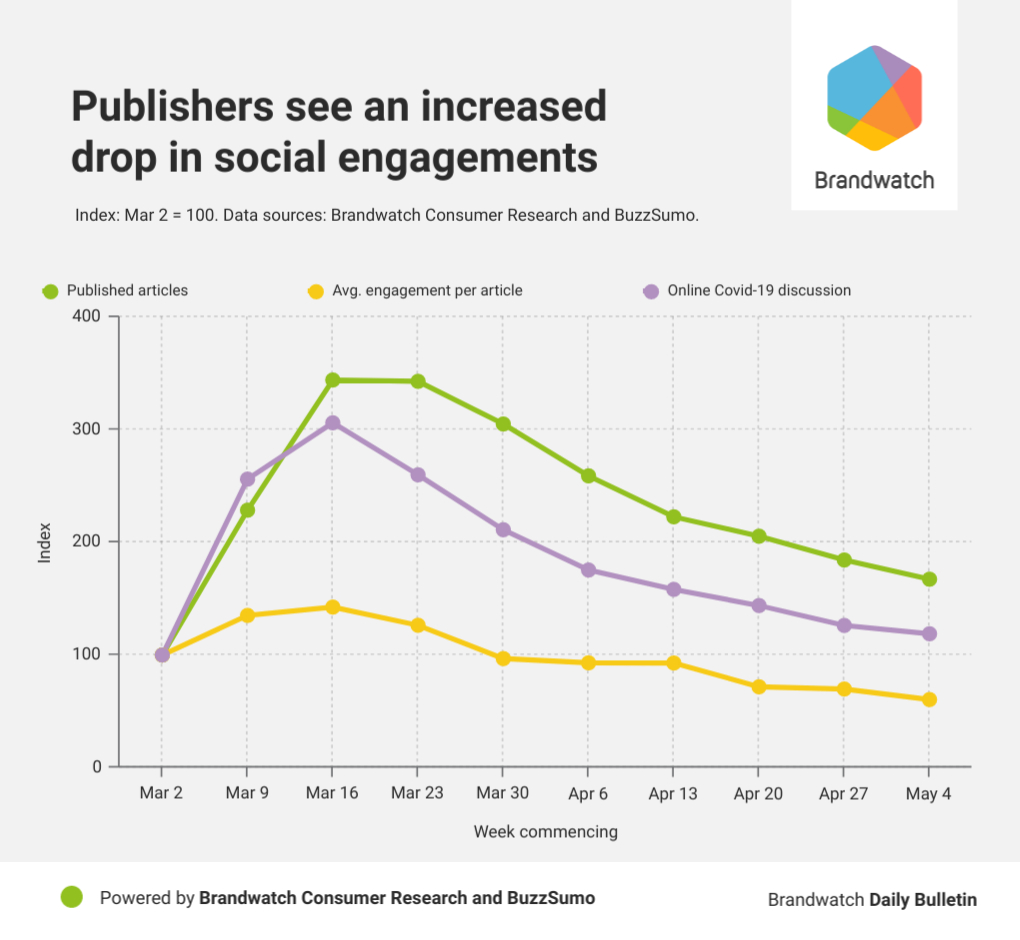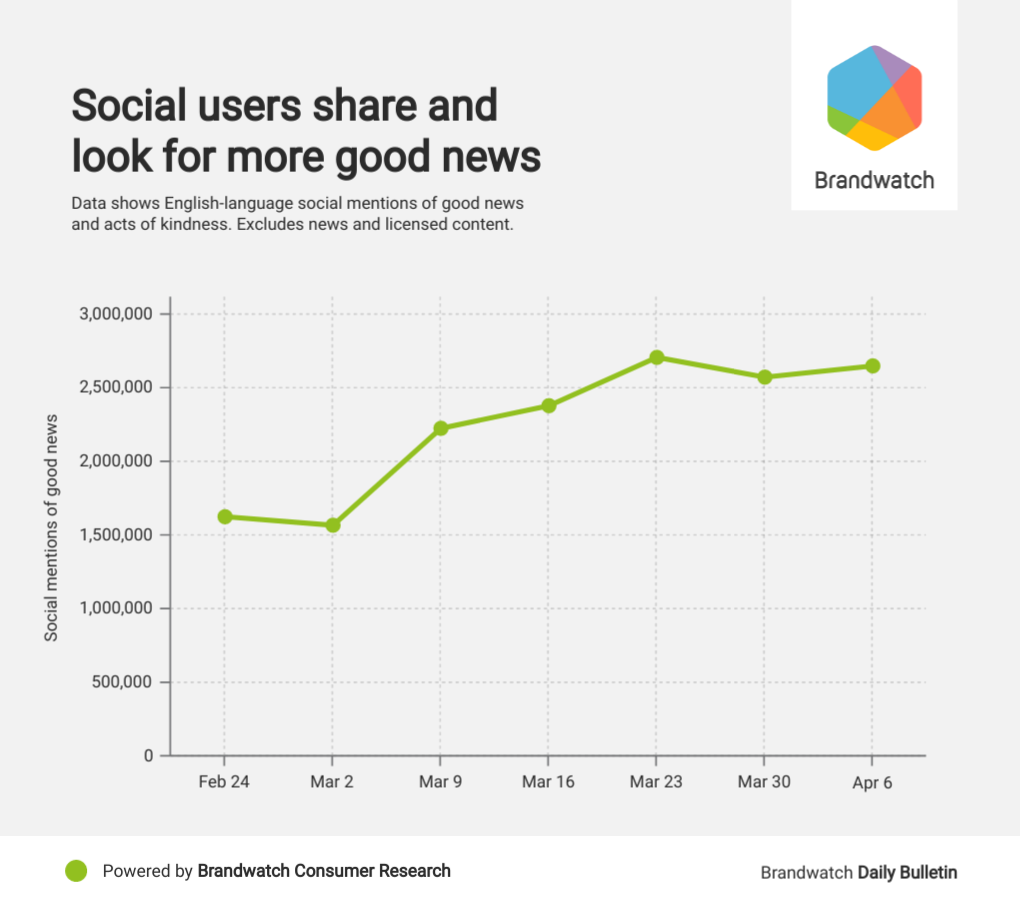As our ongoing Covid-19 research has shown, the pandemic and resulting lockdown have put strains on mental health and stress levels.
But consumers are taking action to keep themselves positive. Using BuzzSumo and Consumer Research, we found that people are increasingly hunting out and engaging with good news stories, while turning their backs on Covid-19 news coverage.
We looked at English-langauge mentions from around the world in March and April to understand more.
Finger on the pulse
Covid-19 fatigue is reaching higher levels every week.
For this analysis, we used BuzzSumo to look at how many articles about Covid-19 were published and the average number of social engagements (Reddits shares, Facebook likes, etc) that they got. We also include the size of the general online discussion around Covid-19 using data from our Consumer Research platform. We then index all these data points to March 2 so we can make the trends comparable.
Here’s what things look like so far.
Across the board, the numbers are falling – the number of articles, the average number of engagements they get, and the number of people posting about the virus.
People aren’t necessarily less interested in Covid-19 – it’s more likely that they’re just getting frustrated and exhausted by engaging with or discussing the topic. This is especially true as death tolls and infection rates get more terrifying, and politics starts to dominate the news cycle.
Good vibes only
Even if numbers are falling, there’s still a barrage of (usually upsetting) news updates. It’s easy to understand why consumers feel overwhelmed.
But, increasingly, those on social media are sharing uplifting news and kind gestures from around the world to distract from the chaos.
Using our Consumer Research platform, despite the pandemic, more people than usual are posting about feel-good and uplifting stories.
From February 24 to April 8 2020, there were 10m English-language authors posting about uplifting news or acts, 3m more than during the same period in 2019. The number has been steadily growing since lockdowns around the world were put into place.
Of the feel-good mentions we found, 8m of them had nothing to do with coronavirus.
Some of the most popular content which was shared and discussed included:
- 73k mentions of recovered koalas being released back into the wild after the devastating Australian bushfires
- 32k mentions of actor John Krasinski’s ‘Some Good News’ show
Among the good news mentions, thousands of people were sharing pictures of drawings, kids, dogs, and cats, according to our Image Insights tool.
That said, the sharpest increases in good news stories were related to Covid-19 itself. For example, when 99-year-old retiree Captain Tom Moore raised £15m for the UK’s National Health Service, his actions increased mentions of ‘good news’, ‘kind gestures’, and ‘hero’ by 400% over seven days. And there were 142k English-langauge mentions of clapping and singing to celebrate our key workers around the world.
The story on Reddit
The ongoing popularity of positive news is echoed by Reddit, too.
We looked at /r/wholesomememes, dedicated to happy memes; /r/UpliftingNews, where people post news coverage of positive events; and /r/MadeMeSmile, where people submit content that makes them feel good.
We found that, because of the pandemic, forum posts were up in the last few weeks. In April, submissions and comments were up 29% compared to February.
/r/Uplifting news was the first climber, rising at the start of March when lockdowns were implemented around the world. These Redditors posted about renewable energy, foodbank donations and falling death rates in Italy.
On /r/wholesomememes, the subreddit which banned Covid-19 memes on March 14, there was a later spike in posts dominated by animals, family, and motivational posts.
Is this a good thing?
Fun and uplifting content is great, but factual and informative news is more vital than ever. With fake news flying about online, getting messages out about important safety information could get even harder.
With thanks to Joshua Boyd for additional reporting and analysis.
Get the latest insights on how consumer opinion and behavior around Covid-19 are changing, straight to your inbox. Sign up to our daily bulletin or weekly report for free.






